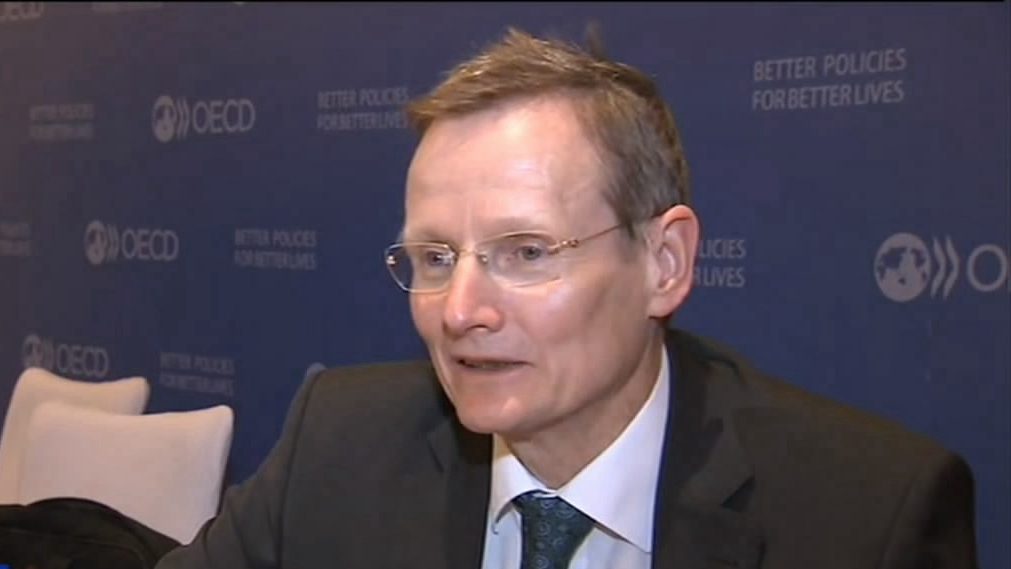
Biz Analysis
15:50, 17-Apr-2019
OECD official suggests China to continue structural reform for quality growth
Wu Zheyu
02:19

The Organization for Economic Co-operation and Development (OECD) released its 2019 Economic Survey of China Tuesday, cutting its forecast for the global economic growth and projecting that the Chinese economy would continue to slow as it rebalances.
Ludger Schuknecht, the deputy secretary general of the OECD, advised China to continue structural reform, which could help China to maintain a favorable economic environment, as well as guarantee China's adherence to a sustainable development path and quality growth.
The OECD's latest survey projected China's economic growth above six percent this year, which is still robust by international standards and contributes to worldwide economic expansion.
The OECD previously cut the forecast for the 2019 global economic growth to 3.3 percent, down from 3.5 percent in the November forecast. It projected the Chinese economy would continue to slow as it rebalances, citing headwinds including the trade frictions.
Schuknecht said China's economic outlook still is not gloomy as long as the Chinese authorities continue structural reform, which is not only crucial for China but also vital for other emerging economies and economically-advanced countries.

Ludger Schuknecht, the deputy secretary general of the OECD. /CGTN Photo
Ludger Schuknecht, the deputy secretary general of the OECD. /CGTN Photo
The OECD report suggested that policies should focus on long-term strategies to move the economy towards higher domestic consumption and services, enhancing economic efficiency and ensuring that future growth is sustainable, greener and more inclusive.
Another critical point within the report is that the slowing growth and swiftly enacted tax cuts in China also imply lower fiscal resources to make growth more inclusive.
As to make fiscal spending more effective when the authorities have mixed goals of balancing economic growth, Schuknecht spoke highly of China's current fiscal status.
He said that the size of China's government revenue and fiscal expenditure structure is in a reasonable state, as revenue collection is functioning well, not like some countries where the revenue collection abilities are weak, and China's fiscal expenditure is spent in productive areas.
Schuknecht also commented that the policy suggestions include broadening the tax base, and prudent fiscal policy should channel funds to targeted areas like education, health and social security systems.

VCG Photo
VCG Photo
While much has been done to address financial risks, the OECD also cautioned that China's ongoing fiscal stimulus should avoid directing credit to state-owned enterprises and local governments, and debt ceilings should take into account sub-national government revenues.
Looking ahead for a broader picture of fostering continued reform, the report said there's ample scope to improve efficiency across the economy, notably by reducing the internal barriers that hinder product market competition and labor mobility.
Strengthening the rule of law, restricting the power of administrative departments and providing precise and detailed implementation rules limiting their discretionary powers would reduce protectionism at the local level, according to the report.
Anti-monopoly rules and enforcement can be strengthened, and public procurement processes could be made more transparent, technology-neutral and open to all players, the report suggested.

SITEMAP
Copyright © 2018 CGTN. Beijing ICP prepared NO.16065310-3
Copyright © 2018 CGTN. Beijing ICP prepared NO.16065310-3